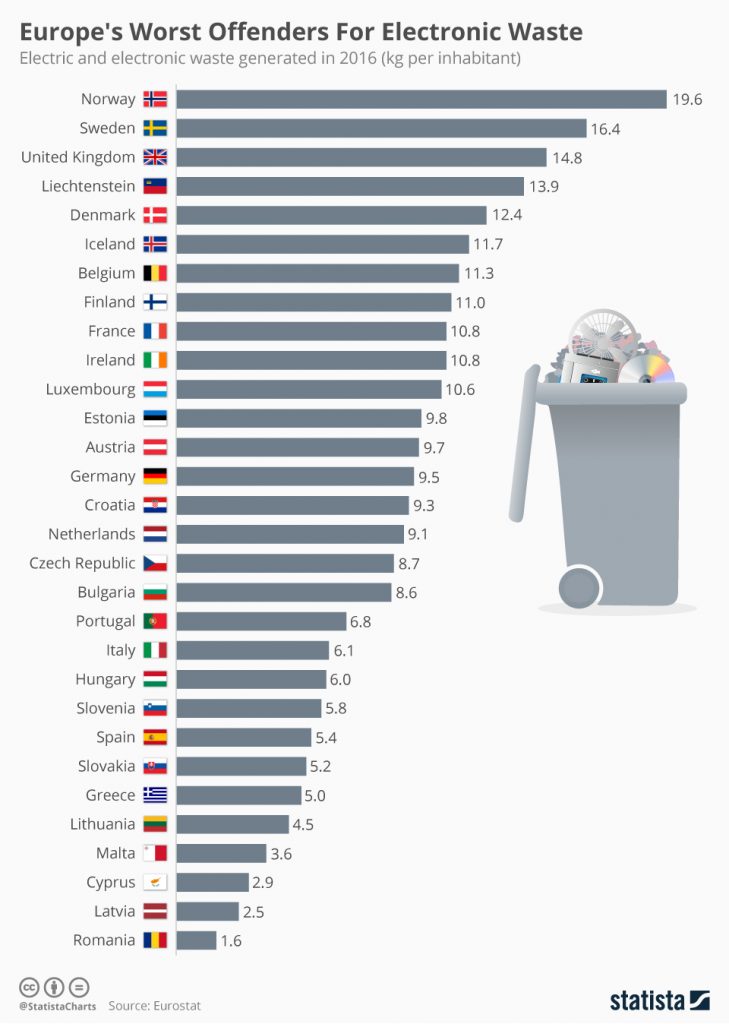Hello again, it’s almost one year since our last post on this issue, we all need an update and reminder it seems?.
So, just to let you know….
At Green ISP we don’t send out a Router to customers for every order, we ask customers to pay for one if they can’t re-use an older one and we encourage customers to take their Green ISP Router with them to thier new ISP if they decide to leave us (which is rare i must say?), they can also send the roter back to us so we can dispose of environmentally or reuse/recycle/refurbish?
Unlike most of the larger ISP’s we don’t “Lock Down” Routers so they cannot be re-used, unlike larger companies like BT and Virgin, Sky etc.
The dangers of irresponsible e-waste disposal may be vastly underestimated.
If not disposed of carefully, electrical and electronic equipment containing many hazardous materials can be seriously damaging to both human health and the environment, and may also be contributing to depletion of the ozone layer, which in turn damages human health as UV exposure increases.
UK households and businesses produce 1.45 million tonnes of electrical waste each year, research shows.
The e-waste research organization Material Focus calculates that at least 500,000 tonnes of the waste were thrown away, stolen or hoarded.

Its latest study suggests un-recycled household electricals cost the UK over £370m a year in lost materials like gold, copper, aluminium and steel.
This is important because mining the metals leads to pollution.
It also harms wildlife and fuels climate change.
It’s estimated there is 3.0 million tonnes of small ICT equipment including Broadband Routers.
A recent report by the European Union-funded Countering WEEE Illegal Trade project found that only just over a third of Europe’s e-waste ended up in official collection and recycling programs. The rest, amounting to over 6m tonnes a year, was either exported (1.5m tonnes), recycled in ways that fell outside the law (3.15m tonnes), scavenged (750,000 tonnes), or simply thrown in the bin (750,000 tonnes).
Considering the vast quantities of e-waste produced worldwide, where this waste ends up is a serious concern.
Considering the energy and materials-intensive process of manufacturing it in the first place, so is the impact on the world’s natural resources and environment.
Find Your nearest e-waste recycling point https://www.recycleyourelectricals.org.uk/electrical-recycling-locator/
……………………………..
Links and sources:
http://www.weeeman.org/html/directive/detail.html
https://www.bbc.co.uk/news/science-environment-53418758
https://www.southampton.ac.uk/news/2016/02/ian-williams-the-conversation.page
